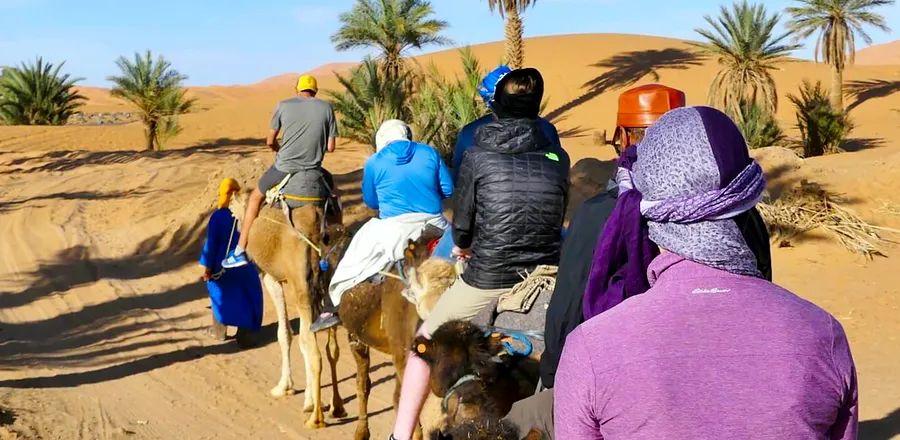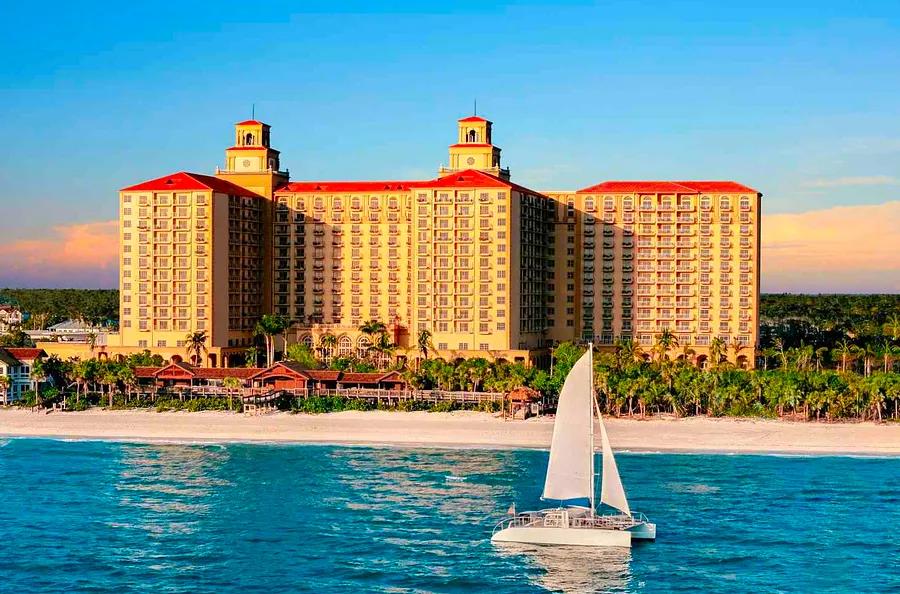This Is What Autism Acceptance Looks Like in the Travel Industry

For many autistic individuals, including my daughter, traveling can pose challenges. She flourishes with strict routines and seeks predictability, which can be hard to find in unfamiliar places. Common traits of autism include sensitivity to sounds and lights, as well as difficulties with social interactions and nonverbal communication. These factors can complicate experiences at airports or crowded venues, making it tough to adapt to new cultures and languages. While new sights, sounds, and flavors may thrill neurotypical travelers, they can be overwhelming—sometimes even paralyzing—for those on the spectrum.
Events like World Autism Awareness Day and Autism Acceptance Month play a vital role in raising awareness about the condition, which the Centers for Disease Control estimates impacts 5.4 million adults and 1 in 36 children in the United States. However, individuals with autism require more than just awareness; they need genuine support to enhance their travel experiences. Fortunately, parts of the travel industry are making strides to be more inclusive and supportive of autistic travelers. Just a decade ago, substantial assistance for these individuals was nearly non-existent. The International Board of Credentialing and Continuing Education Standards (IBCCES), a major provider of autism training and certification, began its collaboration with the travel sector in 2017. Over the past seven years, IBCCES has teamed up with more than 200 travel, hospitality, and entertainment brands, and this number continues to rise. Many other travel providers are also partnering with organizations like Autism Double-Checked or establishing their own autism-friendly initiatives.
Here’s how various sectors of the travel industry—from individual attractions to major airlines—are working to improve the journey for those on the spectrum.
Accommodations and Resorts
To accommodate autistic travelers, an increasing number of hotels are offering amenities designed to enhance comfort and are intentionally creating quiet areas for relaxation. At the JW Marriott Desert Springs in California, autistic guests can request sensory kits that include weighted blankets, sound machines, and fidgets, along with a property map highlighting low-sensory zones. In 2023, the Westin Resort & Spa, Puerto Vallarta unveiled “temper tents” equipped with padded mats, stress balls, and other features aimed at making autistic guests feel more at home.
Several hotels, such as Beaches Resorts and select Hilton hotels, are certified for autism. Various certifying organizations have distinct standards for this certification. Generally, autism-certified venues provide guides featuring photos of the property and step-by-step descriptions of what guests can expect during their stay, staff trained specifically to support guests with autism, and special amenities to enhance comfort, like the sensory kit available at JW Marriott Desert Springs. One of the largest certifying bodies, IBCCES, mandates that autism-certified hotels and attractions undergo staff retraining and recertification every two years.
Virgin Hotels is currently in the process of obtaining certification and aims to implement programming for autistic guests across all its locations by the end of 2024. Beginning this spring, Virgin Hotels will offer “practice stays,” allowing guests with autism to familiarize themselves with a hotel close to home at a reduced rate prior to traveling. As part of this initiative, guests will receive a visitor’s guide before their stay that outlines potential sensory challenges, such as areas within the hotel where they may encounter crowds, noise, and temperature fluctuations.
Airports
Navigating busy airports can be challenging for autistic travelers due to crowds, noise, bright lights, and long waiting times. Thankfully, many airports have established programs to assist them. TSA Cares enables passengers with autism to inform TSA of their specific needs in advance, which may include private screenings away from crowds or permission to wear noise-canceling headphones during security checks. TSA requests that travelers complete an online form or call 72 hours prior to traveling to arrange assistance, but agents are typically flexible and often provide help at the airport even without prior notification.
Over 240 airports worldwide, including JFK in New York City and Narita in Tokyo, participate in the Hidden Disabilities Sunflower program. Autistic travelers can engage in this initiative by wearing a sunflower pin or lanyard, which discreetly signals to airport staff that an individual has a hidden disability that may require extra support. Travelers can order items featuring the Hidden Disabilities Sunflower logo in advance or request a lanyard at kiosks in participating airports.
Airlines
Flying in a tight airplane cabin, surrounded by strangers and loud sounds, can be overwhelming for autistic passengers. Assistance varies by airline, but nearly all airlines offer accommodations for autistic travelers.
Travelers with autism can contact their airline to add “Disabled Passenger with Intellectual or Developmental Disability Needing Assistance,” or DPNA, to their boarding pass after purchasing a ticket. The DPNA code, recognized by airlines globally, alerts staff that additional support is needed, which may include early boarding, accommodating seating preferences, and providing meals upon request.
Some airlines take additional steps. British Airways has developed a visual guide to prepare autistic passengers for the flying experience and has trained staff to provide necessary support, such as upgrading guests to seats with more space or in quieter areas of the plane. Turkish Airlines participates in the Hidden Disabilities Sunflower program, offering priority boarding and seats with extra legroom for autistic passengers. Alaska Airlines conducts practice flights for autistic travelers, allowing them to experience the complete airport journey, from checking in bags to deplaning, before an actual flight. Alaska has also launched a Fly for All mobile app that offers assistance and guidance throughout the travel experience.
Attractions
Numerous attractions have established supportive initiatives to assist autistic individuals. Broadway shows can be accessed through TKTS Discount Booths, and the TDF Accessibility Programs, which present at least four sensory-friendly performances each year that eliminate sudden loud noises and bright lights. Other theaters across the country follow this model to offer sensory-friendly events. Most amusement parks, from Dollywood to Hersheypark, have programs that allow guests with autism to bypass long, crowded lines that may cause overstimulation. Some, like Universal Studios, provide sensory guides to inform guests about rides with sudden movements and sounds, as well as quiet rooms for those needing a space to relax. Many museums also offer sensory-friendly programs with limited attendance and peaceful areas. Beaches Resorts and Panama City Beach in Florida provide PADI-certified scuba diving excursions for individuals with disabilities.

Courtesy of WanderRock
Tour Companies
Overall, group tours can significantly reduce stress for individuals with autism by providing detailed itineraries in advance, along with a knowledgeable tour guide to address questions and manage any issues that may arise.
There are also tour operators that focus specifically on trips for neurodiverse travelers. WanderRock offers group trips for neurodiverse young adults in their 20s and early 30s and trains its guides in a curriculum designed to help travelers develop self-advocacy skills, budgeting techniques, and cultural understanding through experiences. Travelers connect virtually prior to the trip to foster social interaction and receive wellness and self-care tips to help prevent feelings of overwhelm.
While Intrepid Travel does not exclusively cater to travelers on the spectrum, the Australia-based tour operator has recently adopted Ethical Marketing Guidelines to enhance inclusivity. For instance, Intrepid Tours purposefully includes ample free time, allowing autistic travelers the opportunity to relax. To further promote inclusivity, Intrepid Tours is working towards a partnership with Understood.org, an organization dedicated to supporting neurodivergent individuals, to develop more accessible travel options. As part of this effort, Intrepid will provide neurodivergent travelers with trip guides to help them anticipate each aspect of their journey.
Although these sectors of the travel industry have made significant progress toward autism acceptance in recent years, there is still much work to be done. My family must meticulously plan our travels because many locations remain inaccessible for my daughter. Individuals with autism should have the freedom to travel wherever they desire and receive the support necessary to ensure their trips are not only possible but also enjoyable.
Evaluation :
5/5



